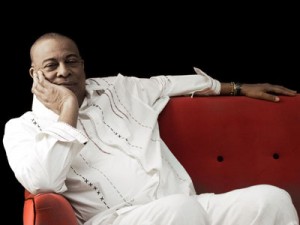A&E Q&A: Jazz Legend Chucho Valdés
Renowned Cuban pianist Chucho Valdés plays the Berklee Performance Center on Thursday, October 28, 2010 with the Afro Cuban Messengers. This is Valdés’s first U.S. tour in seven years — cultural visas for Cubans were revoked by the Bush administration in 2003 — in support of his latest album, Chucho’s Steps. Son of Havana nightclub legend Bebo Valdés and founder of Irakere, Valdés has played with some of the best jazz musicians around, including Herbie Hancock, Dizzy Gillespie, and Chick Corea. Valdés has recorded more than 87 albums, which makes him a busy man to say the least. Fortunately, he made some time in between tour stops to talk shop.
Boston Daily: What was it like to grow up in Cuba in the ’40s?
Chucho Valdés: Growing up in the ’40s was a great experience: it was the golden time of jazz. There was swing, and bebop and Afro-Cuban jazz were born. Havana was full of big bands and in 1947 my father started to play the piano at the Tropicana Cabaret. It is a time that I remember with yearning.
BD: Your father taught you how to play piano when you were three. What was he like as a teacher?
CV: He was an incredible teacher to me! As a child he taught me how to improvise in Cuban traditional music and the different jazz genres. We used to practice together at the piano for many years.
BD: Your son Chuchito plays piano, too. Have you, your father, and your son ever played together?
CV: We never made that happen because everyone’s schedule makes it hard to do. I played with my father and my daughter Leyannis and it was great. We played in September of 2003 in Spain. It was a great experience! But my father is 92 and he is not playing live any more.
BD: You were prevented from coming to the U.S. starting in 2003. How did it feel to no longer be able to perform and share your music with an entire country?
CV: It was frustrating and I considered that a mistake because music does not have to be mixed with politics.
BD: How would you describe your own playing style these days?
CV: My way of playing is a fusion of different elements. I take elements from Afro-Cuban music and I mix it with elements of jazz from different eras and also use some Impressionist items from Ravel and Debussy. I have a lot of influence from McCoy [Tyner], [Bill] Evans, Herbie [Hancock] just to name a few.
BD: You’ve taken time to reflect on your own evolution on your newest album, Chucho’s Steps. How would you say you have evolved as an artist?
CV: This new CD took me a long time. I analyzed my last works with the idea of not repeating things that I did before. And the solution I found was to do different things with the rhythm section, using different time signatures.
BD: What inspired you to pay tribute to so many artists (Marsalis, Coltrane, Zawinul) on this album?
CV: [Joe] Zawinul passed away recently. I’ve always considered him a master on the keyboards, and he was a great influence on my career. This song [“Zawinul”] was in my repertoire 4 years ago, and he heard the song live. And as he is not with us any more I wanted to put it on my album. I met Ellis Marsalis Jr. in the ’70s and he talked to me about his sons who were students by then. He really liked the riffs that I wrote for Irakere and he said that he wanted to make his children listen to it. Some years after I met Wynton and Branford [Marsalis], I found out that they were just great! After that I always admired that family and that’s the reason I made “New Orleans.” “Giant Steps” is a Coltrane standard and his influence is still alive. He is one of my heroes and I composed a complex tune and in his honor I named it, “Chucho’s Steps.”
BD: Bill Evans, another one of your inspirations, says, “It bugs me when people try to analyze jazz as an intellectual theorem. It’s not. It’s feeling.” Do you agree?
CV: Yes. 100% of jazz is made of feelings. I really agree with Bill!
BD: How does playing jazz make you feel?
CV: Improvisation makes me feel very free and it allows me to open my imagination.
BD: What are your post-tour plans?
CV: After this tour I will go to Europe for 12 concerts and at the end of November I will play at the Dominican Republic Jazz Festival. Then I will rest until April of next year — I never stop.



